In honour of NAIDOC Week, Service Managers from Busy Bees at Cameron Park (New South Wales), Busy Bees on Furlong Road (NSW) and Jenny Wren Early Learning by Busy Bees (Australian Capital Territory) are sharing about their commitment to Reconciliation and how they’ve been taking continued action to embed Aboriginal and Torres Strait Islander perspectives and create an inclusive learning environment for all families.
“We take from our team’s lived experiences as Aboriginal peoples to authentically teach the children the meaning and importance behind all cultural activities and to embed Aboriginal and Torres Strait Islander culture throughout the year, not only on significant dates. When those dates come around [i.e: NAIDOC week] we enhance and extend what the children already know and make it a celebration” shares Taylor Safalia, Service Manager of Busy Bees on Furlong Road. Identifying as an Aboriginal person herself, Taylor is very passionate about First Nations perspectives and embedding culture at her Busy Bees Service.
NAIDOC Week celebrations are held across Australia each July to celebrate the history, culture and achievements of Aboriginal and Torres Strait Islander peoples. This week is a great opportunity to participate in a range of activities that extend the children’s learning about Aboriginal and Torres Strait Islander culture.
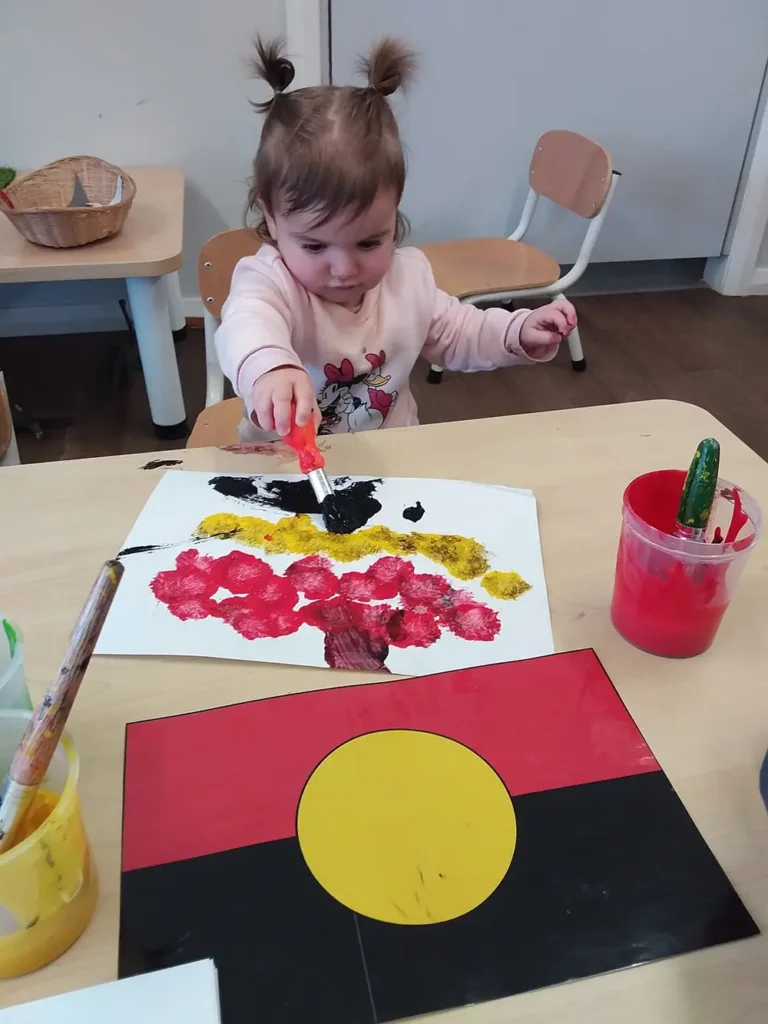
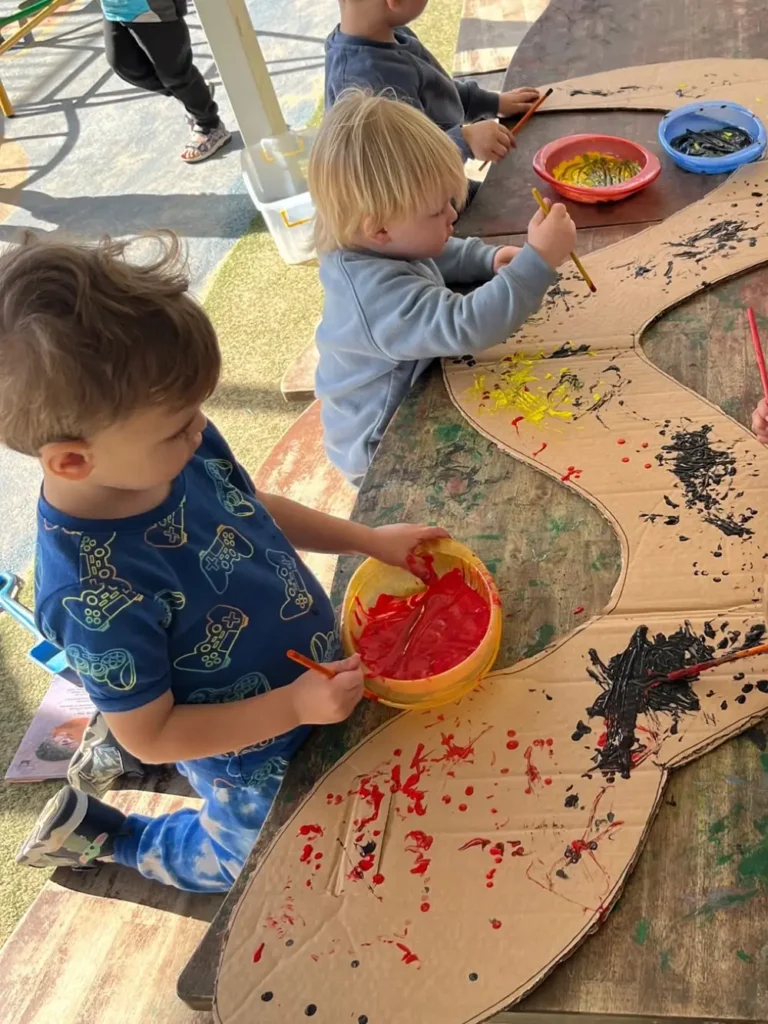
The children’s art at Busy Bees at Cameron Park
At Busy Bees at Cameron Park, Aboriginal stories, images, colours and 8 Ways of Learning have been thoughtfully embedded organically within the rooms. “We have moved away from tokenistic displays of Aboriginal perspective to considering how Aboriginal perspective can be explored in our natural rhythm of the day and in our learning opportunities” states Alex Nolan, Service Manager. The knowledgeable and insightful Educators have carefully incorporated Aboriginal techniques and colours in visual arts experiences. Most recently, the children have enjoyed learning about the significance of having the colours red, black and yellow displayed around the Service to symbolise a safe place for Aboriginal people.
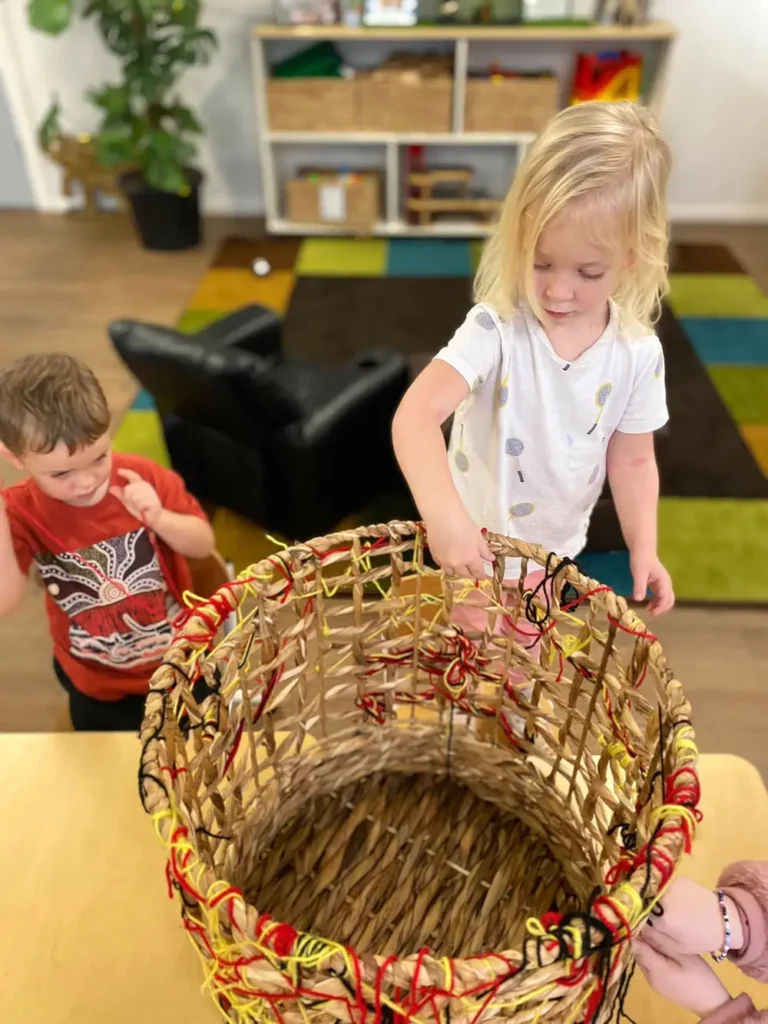
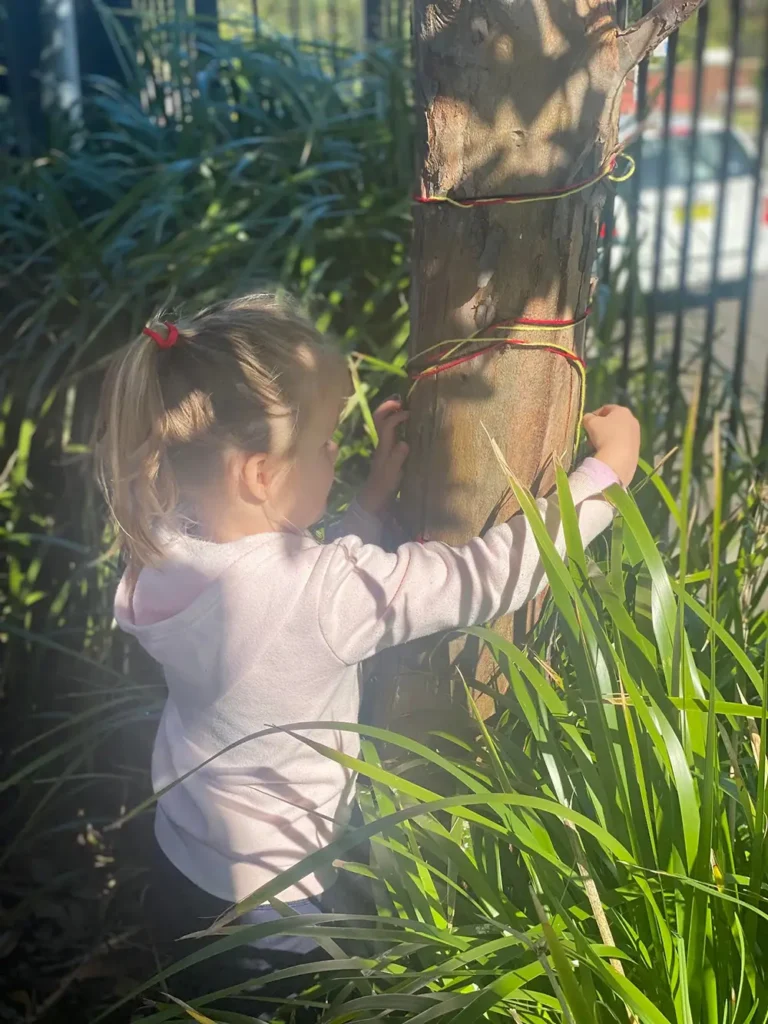
Children weaving safe colours around the Service.
All Busy Bees Services are encouraged to create a sense of belonging for all cultures by incorporating cultural representation in their environments, displays and resources.
“Jenny Wren Early Learning by Busy Bees has had the privilege of hosting many visitors from Aboriginal and Torres Strait Islander communities, sharing in storytelling, and developing our knowledge of Aboriginal and Torres Strait Islander perspectives” said Natalie Contreras, Early Childhood Teacher.
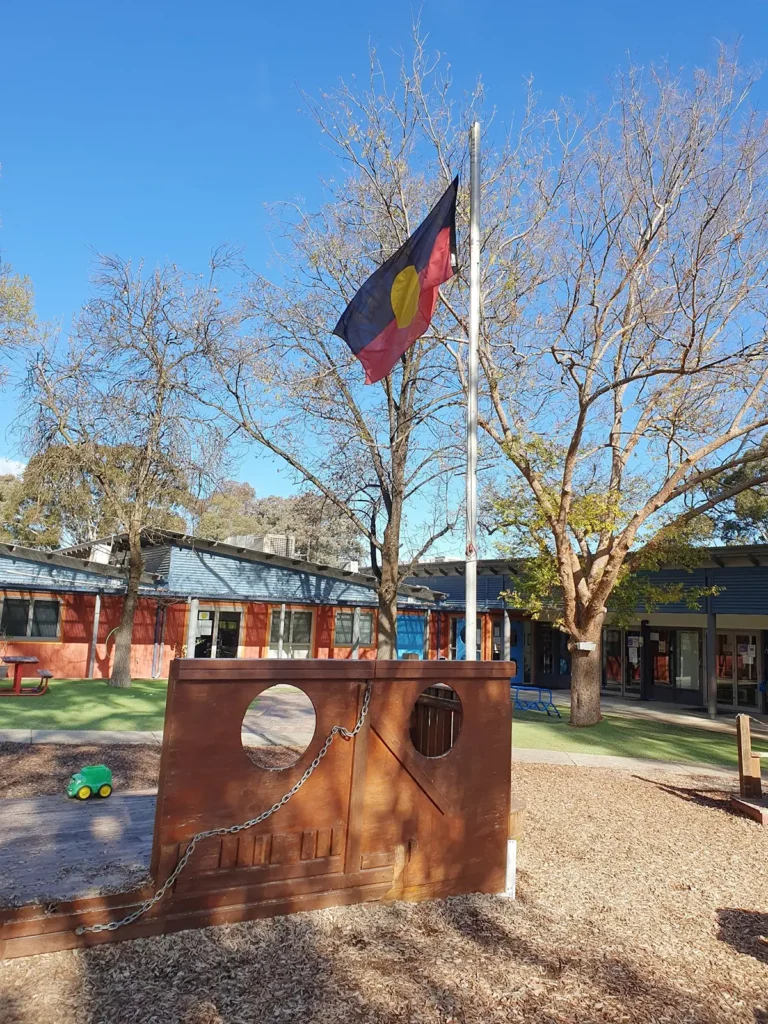
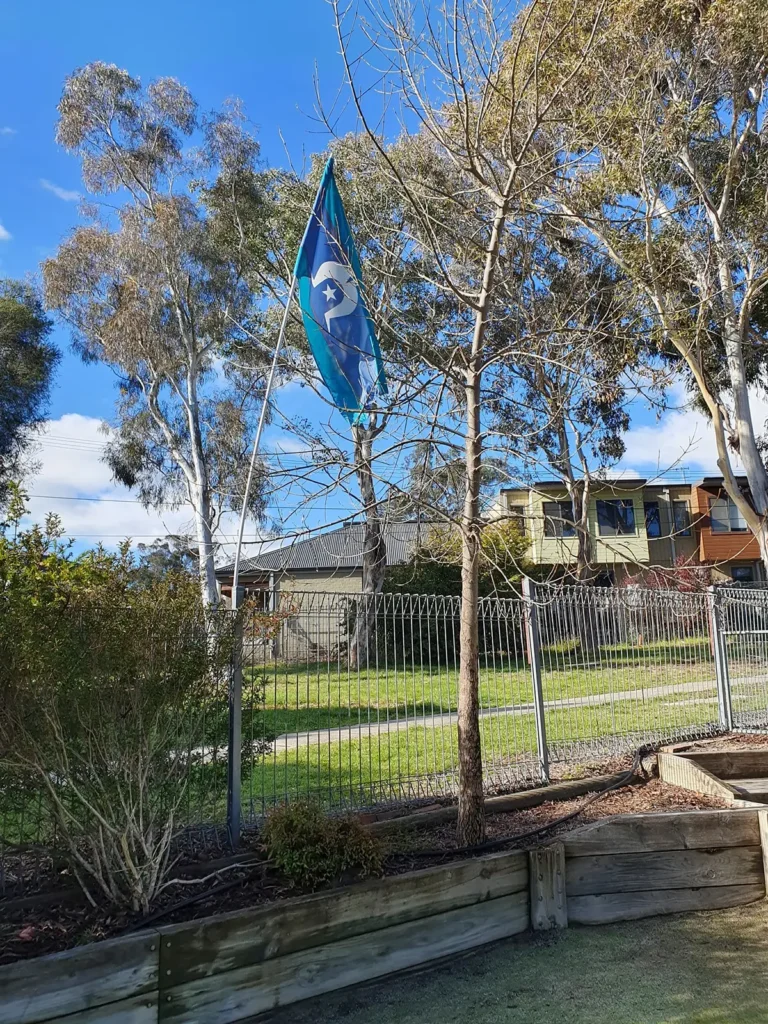
Aboriginal and Torres Strait Islander flags raised by Dr. Matilda House Ngambri/Wiradjuri Elder
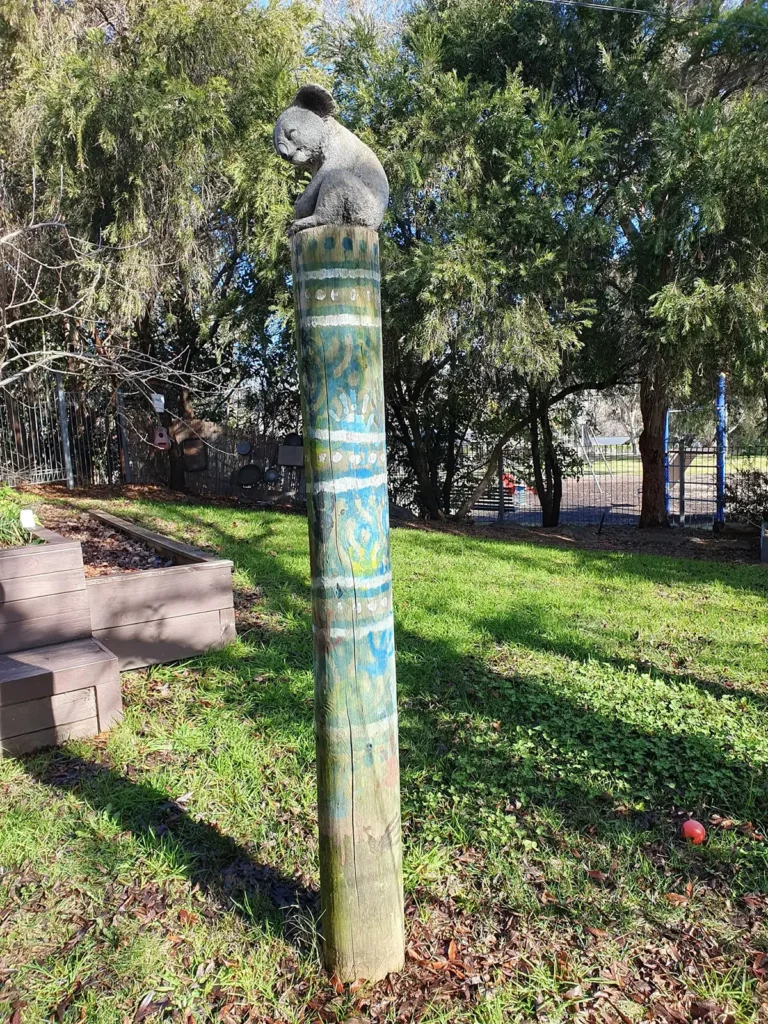
Story Pole at Jenny Wren Early Learning by Busy Bees, created by Duncan Smith from Wiradjuri Echoes
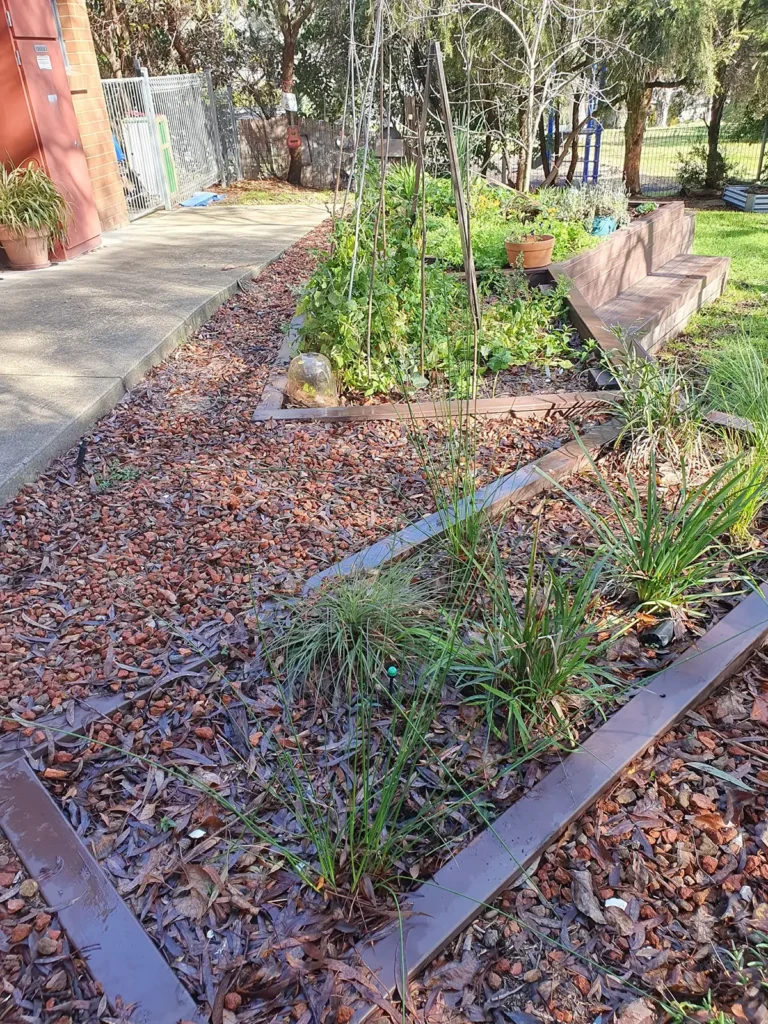
Native Garden at Jenny Wren Early Learning by Busy Bees, developed by Aaron Chatfield from Dreamtime Connections
By forming meaningful relationships with their local community, the team supports Aboriginal and Torres Strait Islander children’s sense of identity and belonging and encourage all children to become socially aware and empathetic citizens.
Acknowledgment of Country
Many Busy Bees Services begin their mornings with a daily Acknowledgement of Country as an important way to show respect for Traditional Owners and the continuing connection of Aboriginal and Torres Strait Islander peoples to Country.
These are unique to the service local and cultural context of the service and families and are delivered in an age appropriate way through story, song and display.
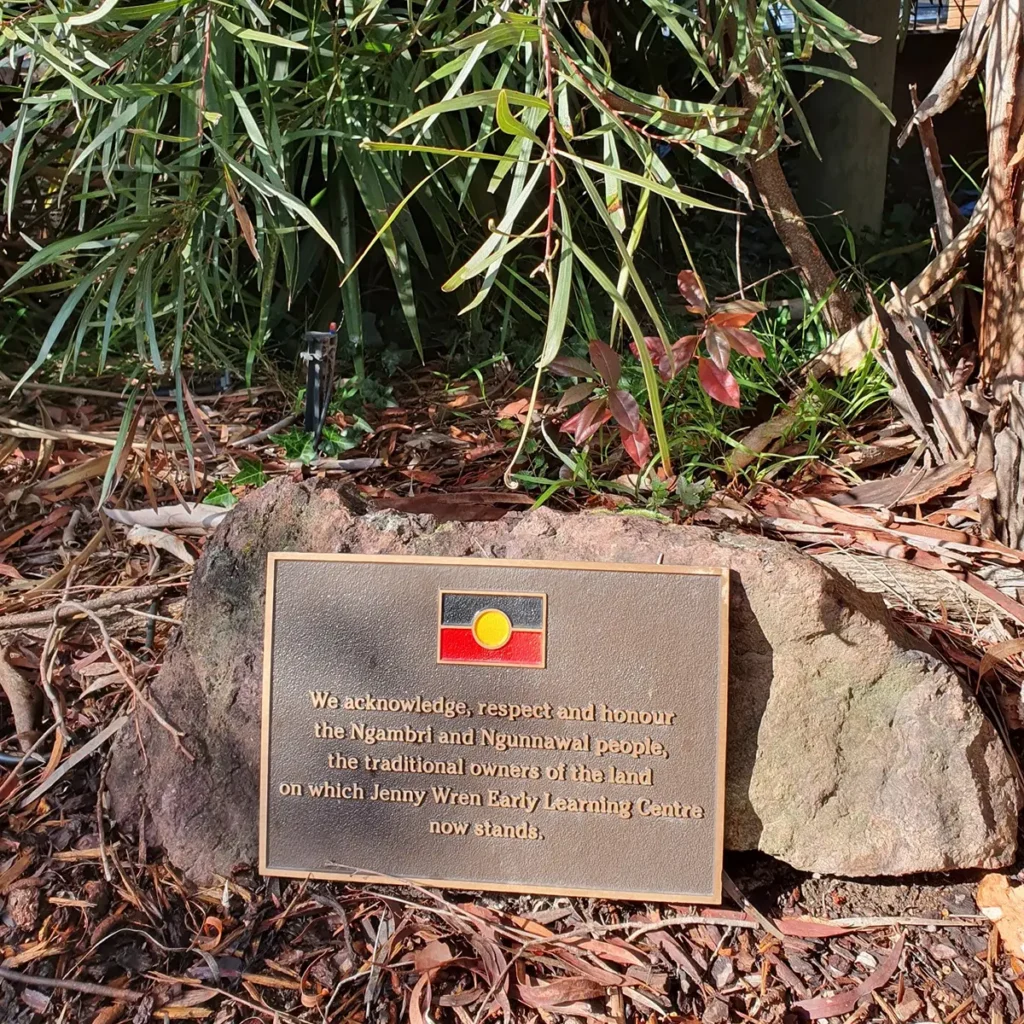
Physical Acknowledgement of Country developed in consultation with Paul House, member of the local Aboriginal Land’s Council. Jenny Wren Early Learning by Busy Bees
“Our Acknowledgement of Country has been adapted and developed over many years, as our knowledge of Aboriginal and Torres Strait Islander perspectives continues to develop. The most recent adaption was to incorporate ‘Yuma’, the Ngunnawal word for ‘Hello’, with the children and Educators now saying ‘Yuma land, Yuma sky, Yuma me, Yuma friends’ to conclude our Acknowledgement of Country. The use of ‘Yuma’ was introduced after an Educator attended a language workshop at the local Reconciliation event at the National Arboretum on Reconciliation Day” explains Natalie.
“We also use AUSLAN signs throughout the Acknowledgement of Country to offer opportunities for everyone to contribute, from the youngest babies to the shy preschooler, who may not be able to or wish to contribute verbally but is able to participate by doing the AUSLAN signs.”
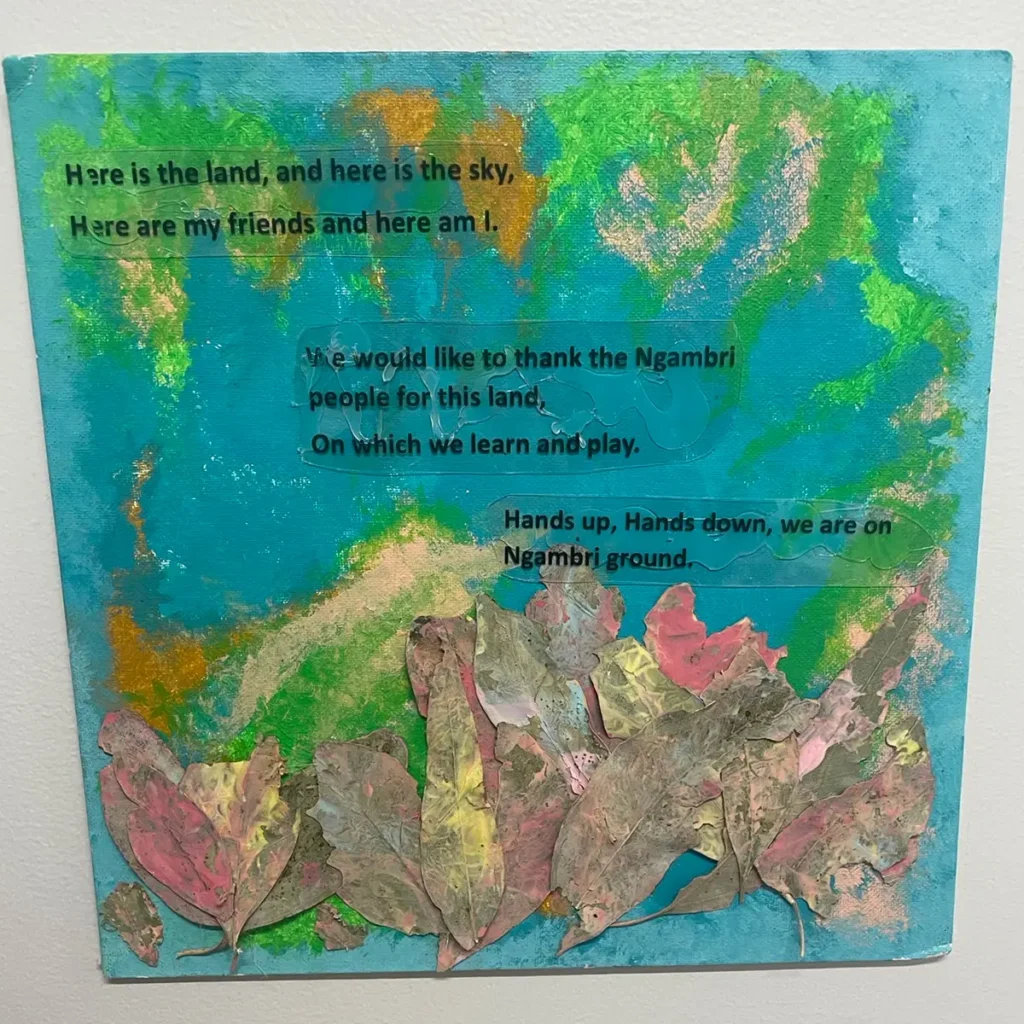
Acknowledgement of Country in one of the learning rooms, Busy Bees on Furlong Road
At Busy Bees on Furlong Road, families are greeted with Acknowledgement of Country in every room. The children and Educators have control over how it is displayed shall it be with paintings, natural materials, or drawings.
The team developed a beautiful way to do the Acknowledgement of Country in their nursery rooms. “Each room has baskets with different representations of the Acknowledgement. When we say “Here is the sky” they have fabric that has colours from the sky. And for “Here are my friends and here am I’ they have photos of the children in the room” explains Taylor.
All Australian children, from the earliest age, deserve to learn about our ancient country and the rich and diverse cultures of First Nations people that continue to this day. Recent updates to the Early Years Learning Framework has included the addition of three new principles, one of which centres on Aboriginal and Torres Strait Islander perspectives highlighting its importance in early education and practice.
In the spirit of Reconciliation, Busy Bees Early Learning acknowledges the Traditional Custodians of country throughout Australia and recognizes First Nations peoples’ continued cultural and spiritual connections to land, sea, sky and community. We pay our respects to Elders past, present and emerging, and extend that respect to all Aboriginal and Torres Strait Islander peoples today.
Busy Bees welcomes your family to tour every day of the year. Find your nearest centre and give us a Buzz or book a tour online.
Are you an education superhero looking to inspire the next generation of lifelong learners? Whether you’re an experienced Educator or looking to start or change your career, we’d love to talk to you about joining our Hive.
